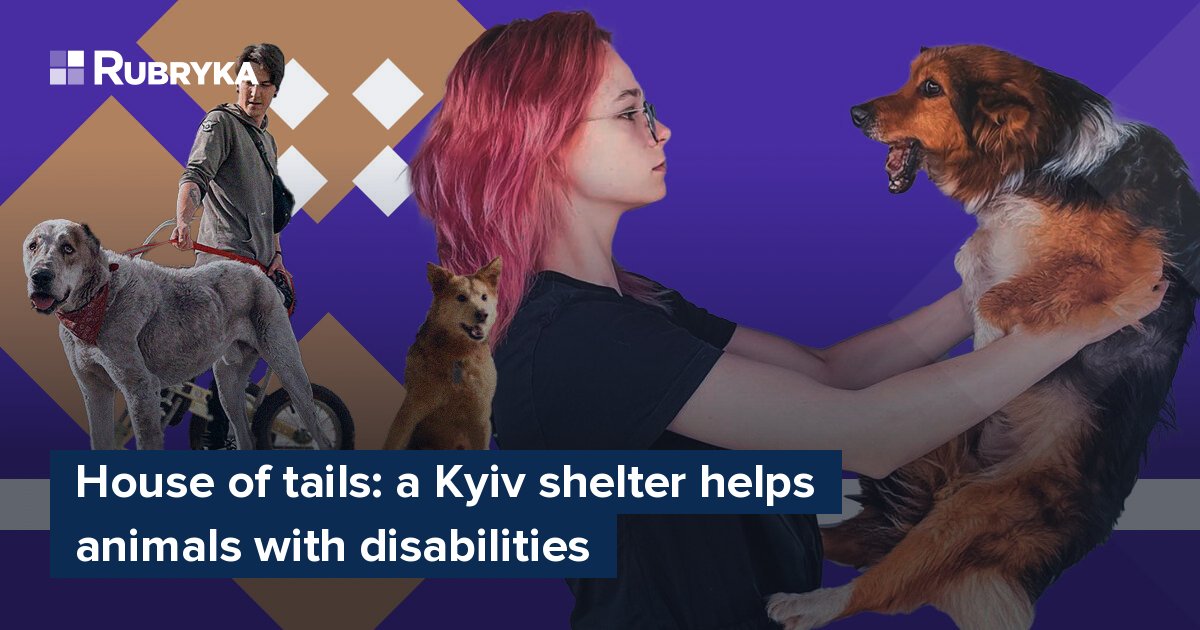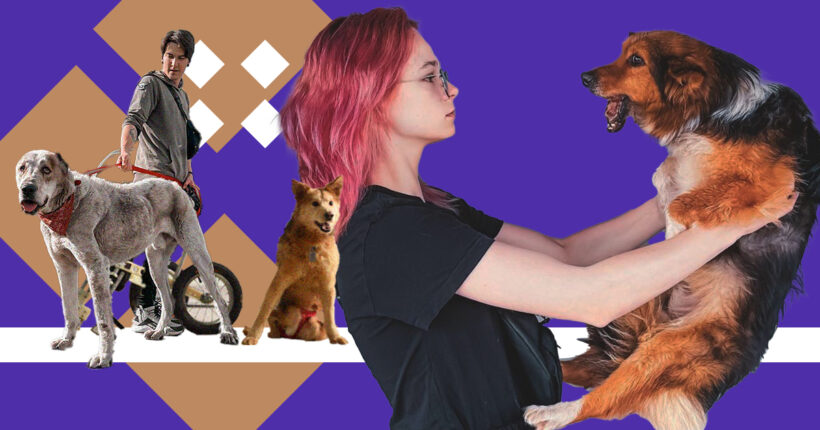
What is the problem?
The problem of abandoned animals in Ukraine was acute even before the war, and after February 24, 2022, it only deepened. According to animal rights activists, thousands of companion animals have ended up on the streets, and the number in shelters has increased by as much as double in areas near the front. It is becoming increasingly difficult for existing institutions to care for all abandoned animals, as there are simply not enough hands and resources. When it comes to wounded and injured animals, the issue becomes critical.
What is the solution?
Caring people are the only hope for salvation for animals who cannot care for themselves. At the beginning of the full-scale war, Anastasia Tykha took out more than 20 injured and disabled animals from Irpin, the Kyiv region. Today, the House of Tails shelter-hospice for injured and wounded animals, founded by her, has become a new home for almost 70 dogs and cats.
The shelter's founder told Rubryka how it works to help abandoned animals, treating their injuries and illnesses to get them back on their paws and give them hope for a fulfilling life.
How does it work?
A chance for life
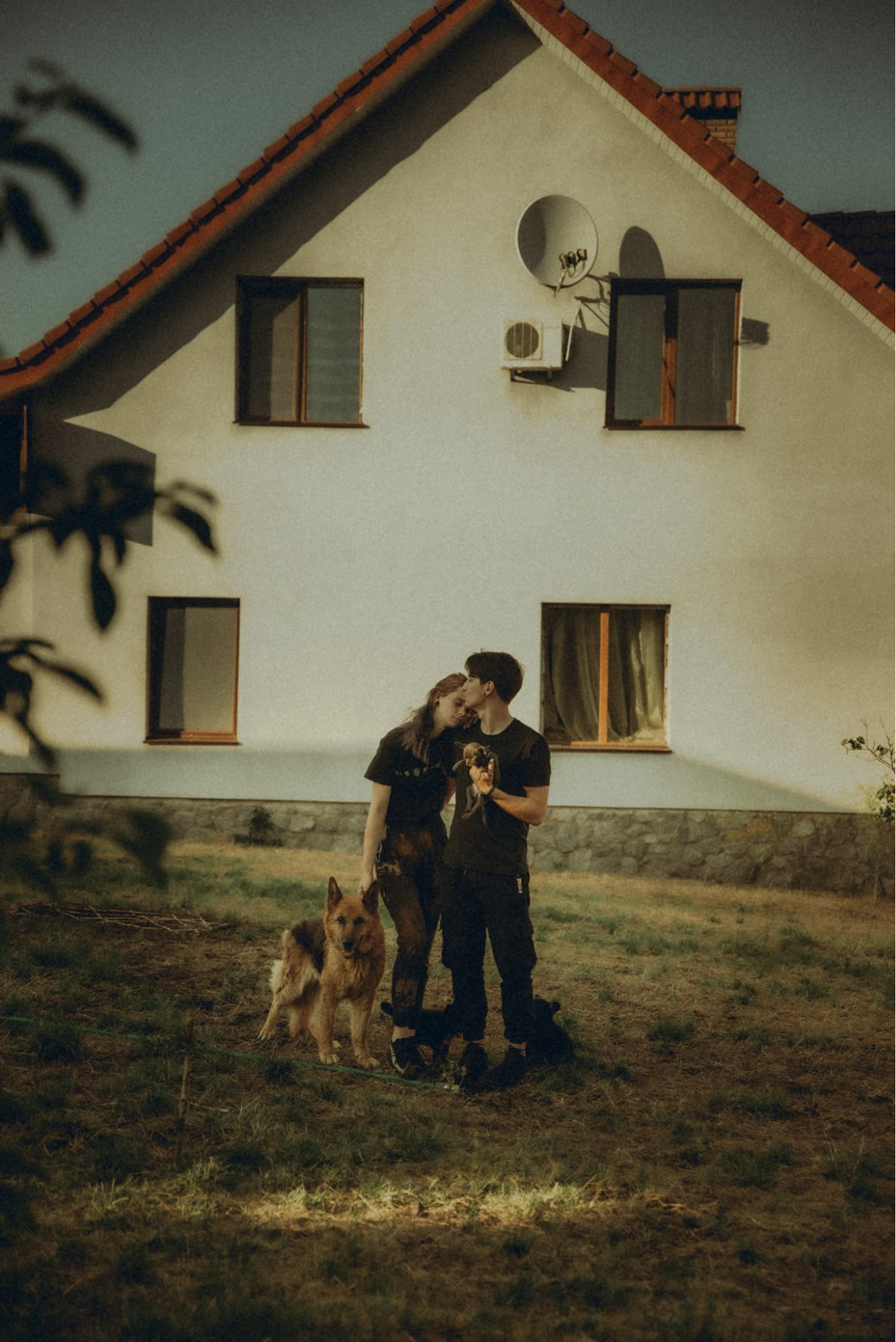
Anastasia and Artem founded the shelter.
The history of the House of Tails shelter began four years ago in Irpin when Tykha and her husband started taking dogs from volunteers for rehoming.
"I enrolled in veterinary school, we started looking for a job and a house, and I thought: why not start working with animals right away?" remembers Tykha.
It all started when the couple found an ad about dog adoption. At first, they helped for half a year with housing dogs before they took in their first cat.
The shelter became a hospice two years ago when Tykha's volunteer friend brought the first dog with a disability. Tykha says that was when she realized that she wanted to exclusively take care of animals with disabilities.
With the goal of giving disadvantaged animals a chance at a better life, to prove that they have a full right to feelings such as affection, love, and care, Tykha set out to establish a shelter for sick animals with physical and mental disabilities, pawless, blind, and deaf in Irpin.
When the full-scale war began, the couple did not want to leave their house in Irpin, and they hoped for a long time that Russian invaders would not enter the city. Getting out with almost three dozen animals seemed like an impossible mission — soberly assessing their capabilities, the young couple understood that taking them all out would be very difficult.
Hope glimmered until the gunfire began to sound from everywhere. When all communications were turned off in Irpin, it became clear that evacuation was becoming necessary.
At that time, two dogs with broken spines resided in the shelter — one had been hit by a car, and the other had been beaten and taken to the forest. The third one had been missing two paws, and another dog missing a back paw.
"A year ago we left home into the void"
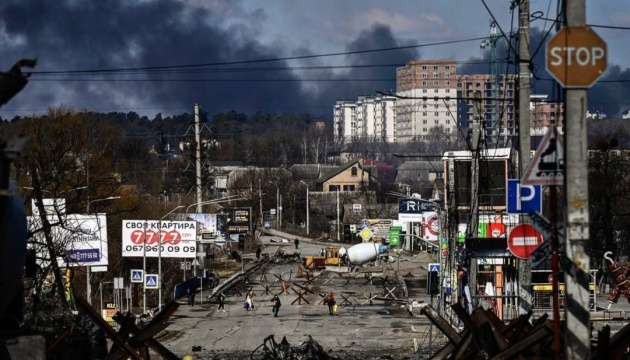
Tykha and her husband packed up their belongings to evacuate in 15 minutes. At that time, they did not even know where they would live and where the animals would be placed — their volunteer friend Snizhana, who was waiting for them in Kyiv, had to take care of this.
Their plan was to go through the whole of Irpin, cross the bridge and load the animals into a car that other volunteers had provided.
The couple and their dogs covered a distance of three kilometers in three long hours. Several dogs broke off their leashes and ran away, while others had to be carried.
"We are walking along University Street, and there are shot cars and corpses," recalls Tykha, replaying the scene in her mind. "Another dog, Zyuzya, breaks out of the collar, looks at me, and runs away. I stand there and understand that I cannot run after him, otherwise, I will have to leave everyone. We approach the bridge. The soldiers run to us and ask: 'how can we help?' How glad I was of this help! I didn't have enough strength."
The couple had to return several times for the lost animals. Almost all of them were found. On the way, they took a sheepdog from a destroyed house and two more dogs abandoned by neighbors. In addition to dogs and cats, the House of Tails founder took a chameleon, a turtle, and a hamster to a safe place.
A ray of hope
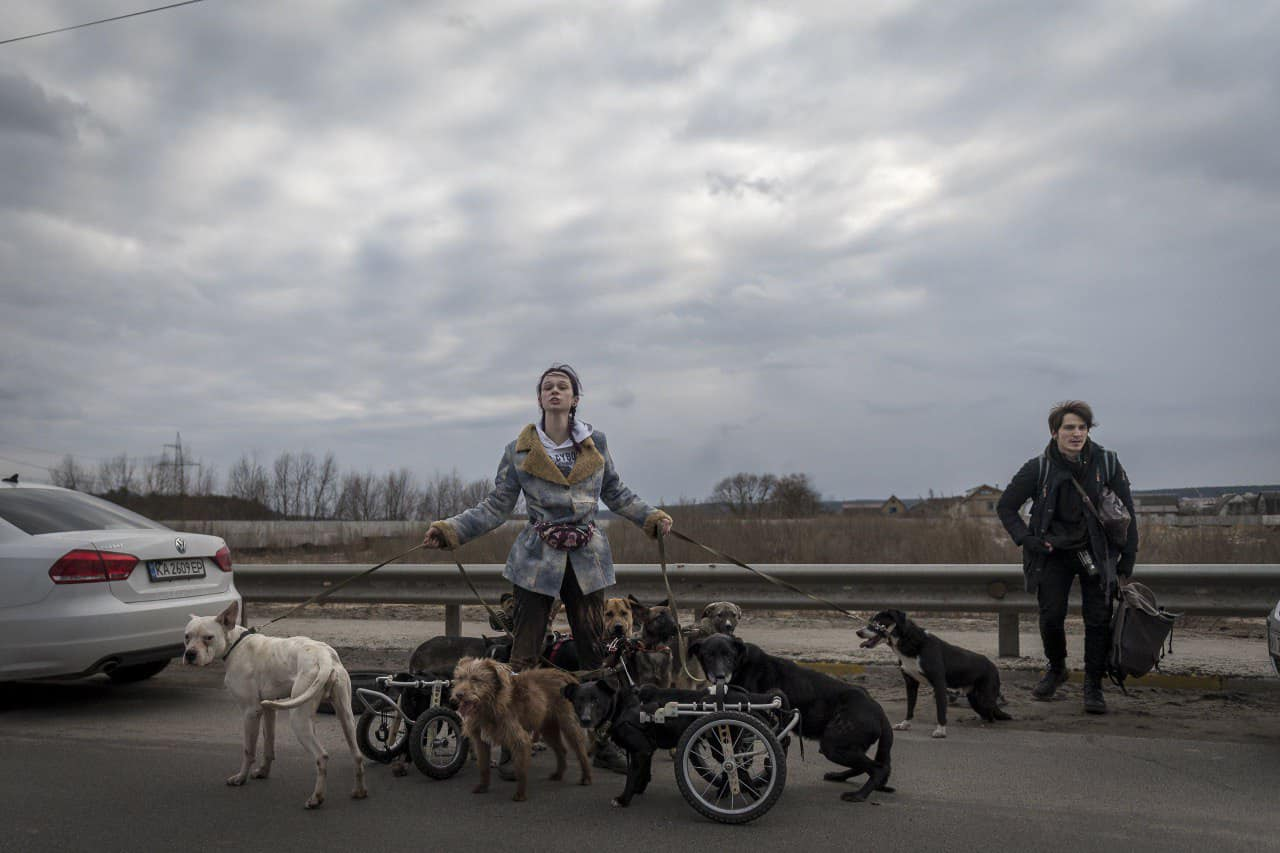
Anastasia Tykha with rescued animals crossing the bridge on the way out of Irpin, March 2022. Photo: Christopher Ochikone
Journalists on the bridge surrounded Tykha and her dogs. Then, American photographer Christopher Ochikone took a photo which in March 2022 circulated widely in Ukrainian and foreign media outlets. The photo shows Tykha with a proudly raised head, leading her four-legged friends away from Russian occupation: old, exhausted, frightened, without paws and on wheelchairs – but not abandoned or betrayed.
As Tykha admits, when the photo was taken, she was arguing with photographers preventing her from crossing the bridge. However, this photo became very helpful for the residents of the shelter. Thanks to people who saw this photo and learned about Tykha and her animals, the couple and their wards managed to find temporary housing in Kyiv. Thanks to this photo, all the dogs in the picture managed to find new families abroad.
"Yes, this photo helped us a lot. This whole situation pushed me and my husband to take more active steps to develop of the shelter. Then everything went as perfectly as possible. Usually, disabled animals are not taken from the shelter, but all the animals in the photo have found their families," says Tykha.
How the House of Tails lives now
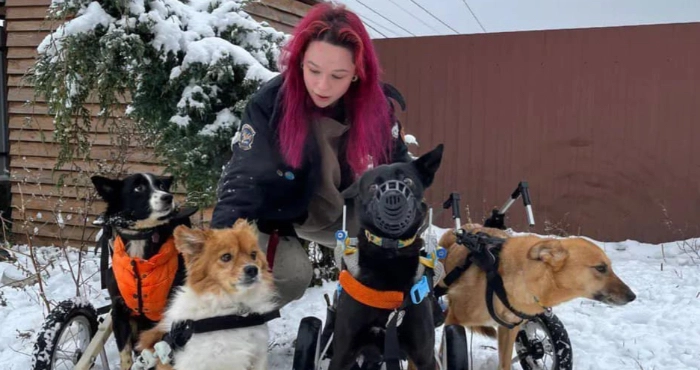
Tykha taking care of her wards
After Irpin's de-occupation, the couple returned and opened a renewed shelter in which they housed dozens of cats and dogs made homeless by the war. "We rented a bigger house. We are fortunate — the person from whom we rent it is not too worried about it but loves animals. He gave it to us on the condition that we continue to work with dogs," shares Tykha.
Before the war, there were 20 dogs and two cats in the shelter, and now there are 51 dogs and 15 cats — many are old, disabled, or cancer patients. Most of them are evacuees from hot spots and the front line.
Requests for help with four-legged friends often come through social networks, and the shelter decides what can be done to help. Animals come to the House of Tails from all over the country — not only from the frontline areas. Injuries and wounds also differ — from congenital pathologies to disabilities due to trauma. In 2022, the couple managed to save more than 300 dogs.
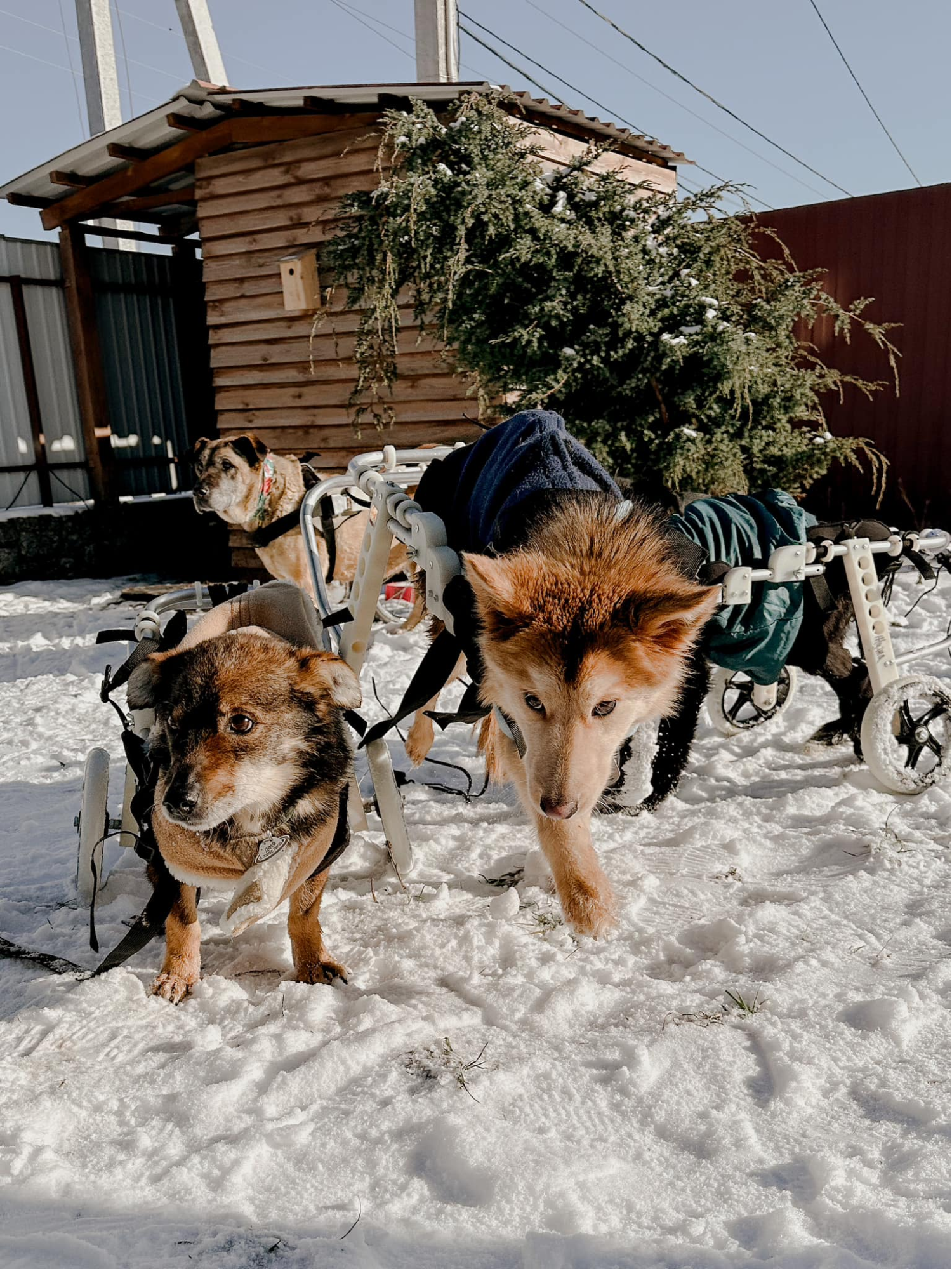
The shelter takes care of animals with different disabilities.
A usual day at the shelter goes like this: the couple gets up, cleans up after the dogs, washes the disabled, distributes medicine, and feeds them. They go to clinics and repeat the same chores in the evening. When new animals are brought in, they first pass through the clinic, where all the necessary tests and diagnostics, treatment and operations are performed. They then come to the shelter to live with their new family.
The shelter does not have enclosures for animals with disabilities, and sick animals live with people in the house. Caring for them is more complex — they often develop bedsores and wounds on their body. But, as the owner of the shelter says, dogs with disabilities get used to carts quickly and are very happy to be able to run again.
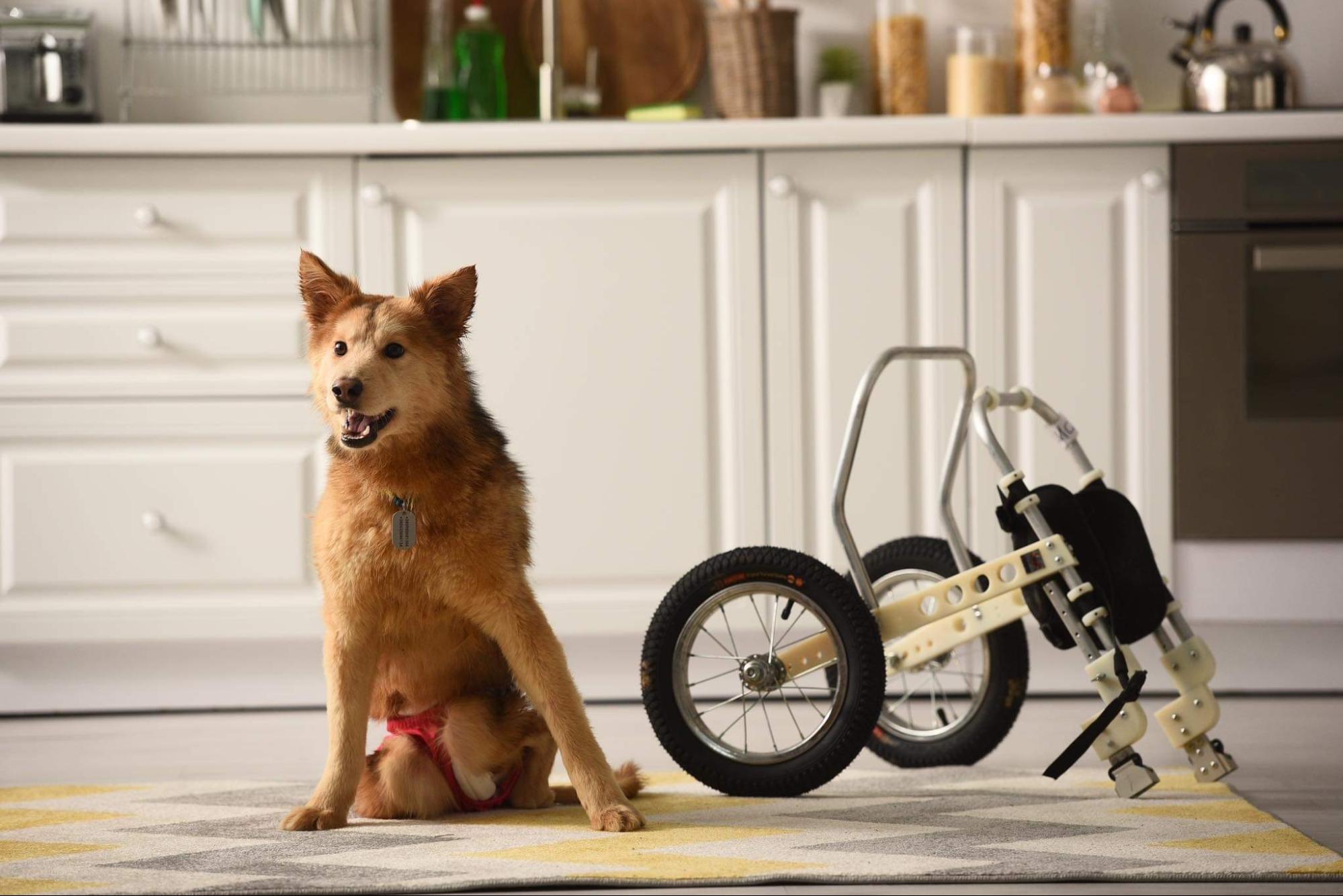
The names of the pets are invented together with the followers of the shelter's social media pages.
The dog in the photo above is Lysychka. She was hit by a car on the highway. This dog is one of the first disabled animals taken to the shelter. She has a very complex fracture, and even crawling is difficult for her.
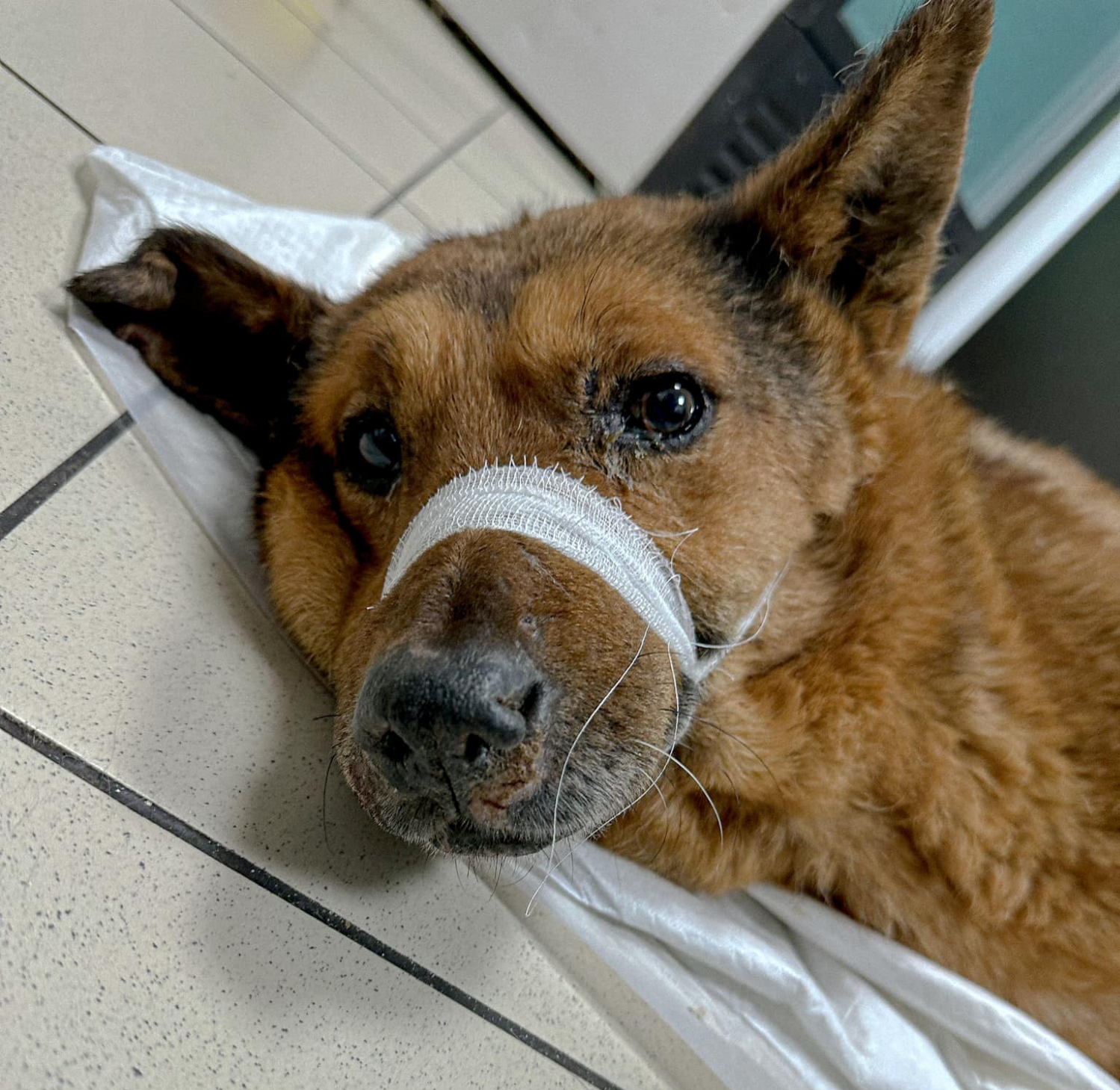
Major, a shepherd, served ten years at the border and even won awards before he was injured under the wheels of an inattentive driver. Major arrived in Irpin by train. Tykha remembers that he was terrified, he was afraid to move, frozen because the train was noisy, and he traveled for more than 12 hours. House of Tails was the only place that agreed to treat Major – despite spinal injuries, two crushed vertebrae, and other problems, Tykha immediately believed in the dog's good nature.The brave Major held on, tried to bite the catheter, and stood up in the clinic, and his appetite was good.
When Major was discharged from the clinic, a wheelchair was immediately ordered for him. "Major retired, but he lives on! I hope we will provide him with a good pension," says Tykha, happy for her new ward.
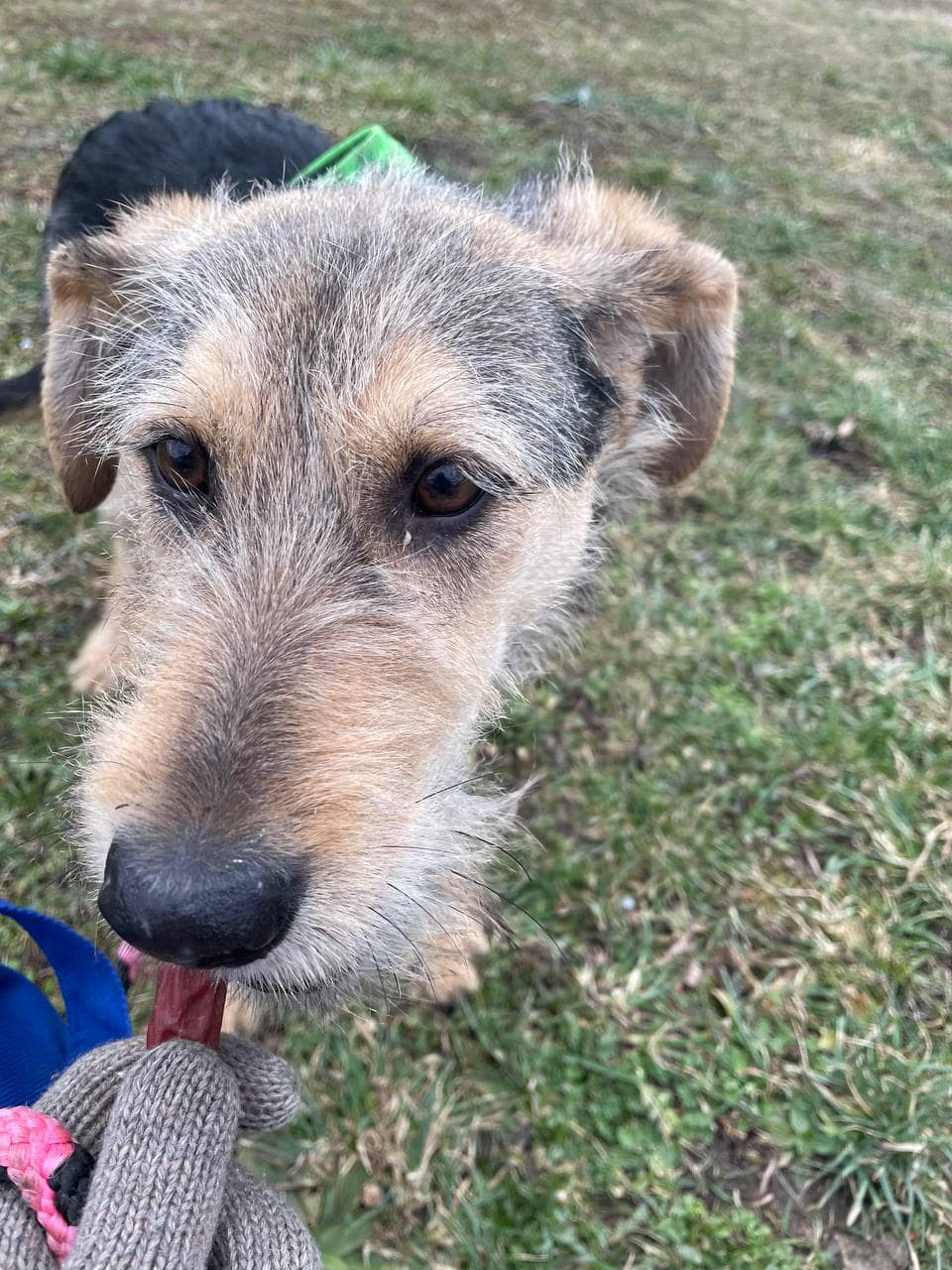
Tyoma came to the Irpin shelter from Kherson, sick and with numerous fractures. Tyoma now has a home. Although, according to Tykha, he has already spent three of his nine lives, he once again grabbed a lucky ticket — and now lives in Germany.
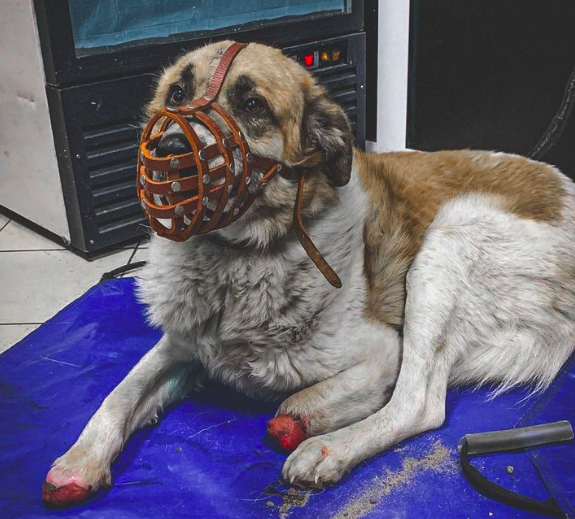
This is Boss. This spring has become a terrible time for him. The flayer, it is difficult to call such a creature a person, injured the dog by cutting off its front legs. Boss lay for several days in dirt, torment, and pain until he was found by one caring woman who organized his transportation and escorted him to the House of Tails. Now Boss is waiting for an operation — the stumps need to be shaped and prepared for prostheses. In a new place, the dog aggressively defends itself and does not allow anyone to approach him.
Tykha says: "Boss has lost faith in humanity," but one would like to hope that treatment, careful care, and affection will be able to restore the dog's trust in people. Anyone willing can help Boss to walk again — now the shelter's Instagram page has announced a collection for his treatment.
"They are mine. At first sight"
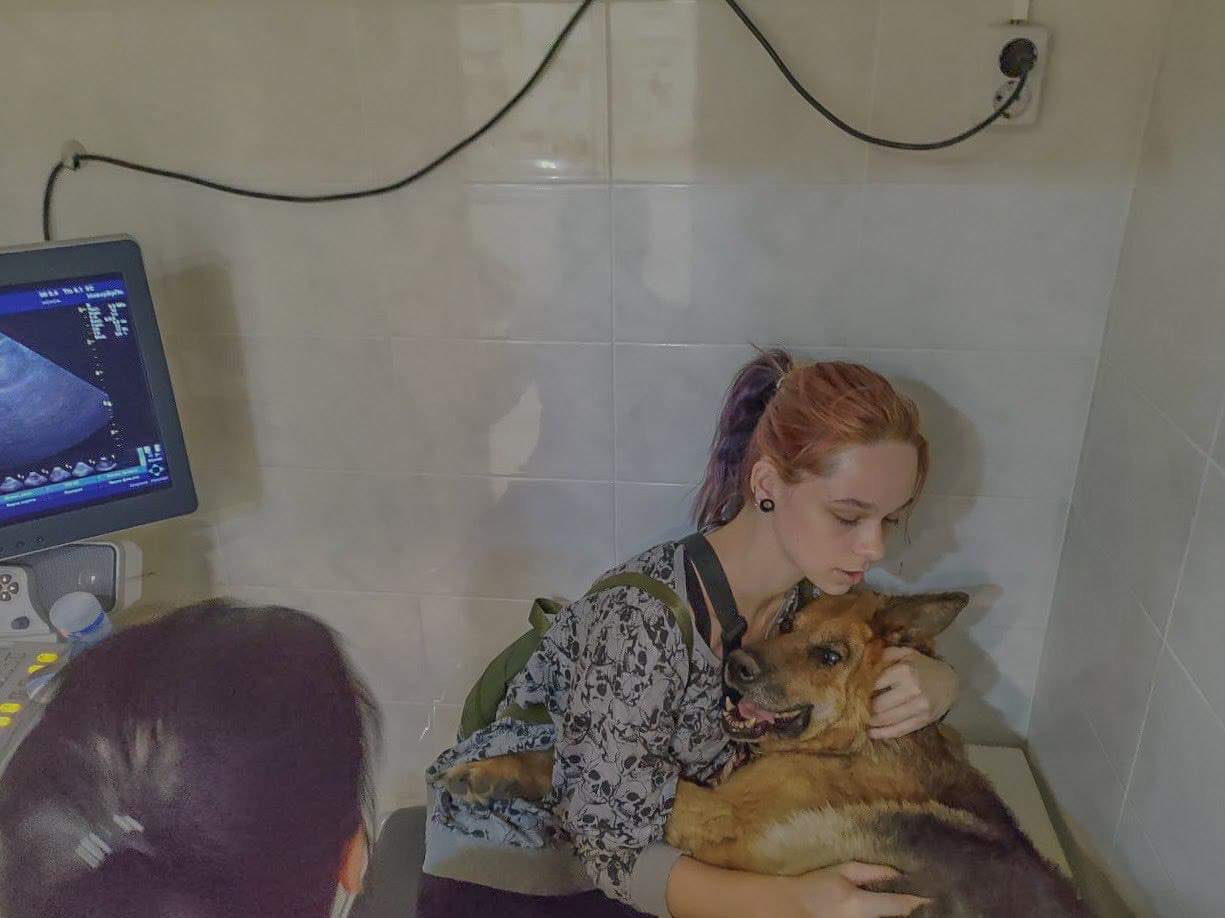
"Honestly, taking care of animals is my dream," shares Tykha. "I wanted to become a veterinarian and work in a zoo. My whole life is connected with animals — I got my first dog when I was six."
When asked if she has favorite pets, the activist admits there are as many as 11. Five of them are rescued dogs, and four cats were picked up on the streets.
"Sometimes a dog is yours at first glance, and it happens that, on the contrary, it hates you – but you treat it, patiently take care of it and still seek its friendship, and then you can't give it to anyone," Tykha shares.
Tykha admits she often encounters people who expect the shelter to accept any injured dogs or cats but the resources at the House of Tails are limited, and Tykha says that sometimes she has to fight back against criticism on social networks.
"There were moments when I wanted to give up everything or at least preserve everything as it is, not to accept new animals, because sometimes it is very difficult: sometimes I overestimate my capabilities, sometimes many animals die," Tykha sighs, "But my husband, my two assistants, my parents support me — they drive us everywhere, help with the dogs and even took a couple of dogs to stay with them. The main thing is that I am supported and inspired by the animals that live with us."
Even more useful solutions!
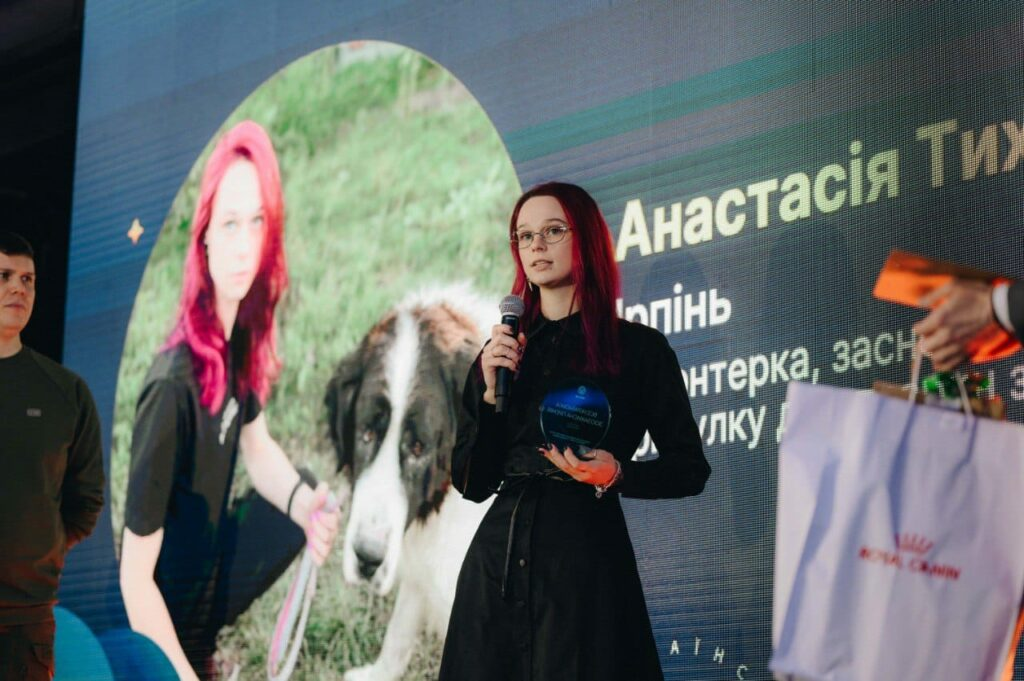
In February 2023, 20-year-old volunteer Anastasia Tykha received the All-Ukrainian Animal Protection Award along with 19 other Ukrainian animal rights activists, from the animal protection organization UAnimals and the Humane Country organization.
"The first All-Ukrainian Animal Protection Award is our way of thanking the hundreds of thousands of Ukrainians who, under shelling and occupation, continue to save animals: dogs and cats, cows and sheep, tigers and lions. We handed over twenty statuettes to volunteers and animal rights activists nominated by Ukrainians and chosen by a jury. I believe there should be a thousand more such awards in Ukraine — for an older lady who shares food with homeless animals in the occupation, for a service member who saves every life nearby, protecting Ukraine, for all those whose names we may not even know, but whose heroism we are inspired by every moment," said Oleksandr Todorchuk, the founder of UAnimals and the initiator of the award.


